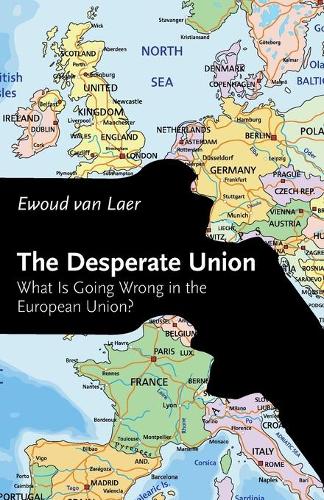
The Desperate Union: What Is Going Wrong in the European Union
(Paperback)
Publishing Details
The Desperate Union: What Is Going Wrong in the European Union
By (Author) Ewoud van Laer
Foreword by Simon Kuper
Anthem Press
Anthem Press
25th November 2019
United Kingdom
Classifications
Professional and Scholarly
Non Fiction
306.2094
Physical Properties
Paperback
170
Width 140mm, Height 216mm, Spine 26mm
454g
Description
A study of the consequences of the cultural differences in Western Europe.
The European Union's origins lie in the ruins of World War Two. This war inflicted huge psychological damage and everyone came to the same conclusion: no more war! European integration proved a successful tool for realising this deep-seated need. Now, 60 years on, the tool appears to have lost its effectiveness. A large section of the population is worried about the EU's common policies. The Desperate Union discusses the consequences of the profound cultural differences in Western Europe and emphasises the role cultural differences can play in the debate about further European integration.
Reviews
"A convincing analysis and in accordance with the conclusions of scientific research on why it is difficult for countries in the EU to co-operate swiftly in the face of a crisis, like COVID-19. Highly recommended for all who want to get an insight into the relevant cultural differences between these countries." Eelke de Jong, full professor of international economics, Radboud University, Nijmegen, and author of Culture and Economics.
This is a remarkable book. It is also an important book because it is about a structural flaw that poses a fatal risk to the monetary union. This flaw is the disregard of the cultural differences that exist within the borders of the European Union. What is remarkable about it is that in addition to official statistics Ewoud van Laer has used detective stories to support his theory. Readers will encounter Inspector Maigret, for example. A well- documented and well- written book.
Frits Bolkestein, European Commissioner, 19992004
While I do not agree with all of Ewoud van Laers conclusions I found his analysis of the deep cultural and historical roots that separate northern and southern Europe fascinating. His book is essential reading for anyone trying to understand the present deep tensions within the EU.
Nick Clegg, deputy prime minister of the United Kingdom, 20102016
You need to read this book to understand that Brexit did not come out of nowhere and that we are at a crossroads with regard to the future of our union. Restoring mutual trust by gaining a better understanding of one anothers backgrounds would appear to be the solution. Ewoud van Laer provides guidance for this in his book a must read for anyone who feels involved with the European Union.
Hans Bartelds, chairman of Fortis, 19902002
I found it very interesting that cultural differences a topic that many people know about at a general level have now been set out on paper and examined in depth, illustrated by very relatable and original examples.
Ina Giscard dEstaing, charg e de mission of the Louvre Museum
I have always had my doubts about the monetary union, largely based on my own personal experiences at a great many international meetings. In this book Ewoud van Laer clearly demonstrates the issues we found ourselves wrestling with and how deeply value systems are ingrained in us.
Andr Szsz, executive director of the Dutch Central Bank with responsibility for international monetary relations, 1973 94
In this extremely clearly argued book, Ewoud van Laer demonstrates that we are trapped in a cultural and monetary dilemma. The tenability of the monetary union calls for further integration whilst the priority for people at the moment is maintaining their own way of life. There are no economic models that are able to cope with this dilemma.
Professor Casper de Vries, Witteveen chair of Monetary Economics at Erasmus University
It is primarily the combination of hard facts and the examples drawn from literature and real life that make this an important and original book. It transpires that cultural differences are highly significant to the European integration process.
Edgar du Perron, justice of the Dutch Supreme Court and professor of Private Law at the University of Amsterdam
Author Bio
Ewoud van Laer worked as a banker for different European banks. The cultural differences he experienced became the starting point for his book on the deep gap between North and South in the European Union.
